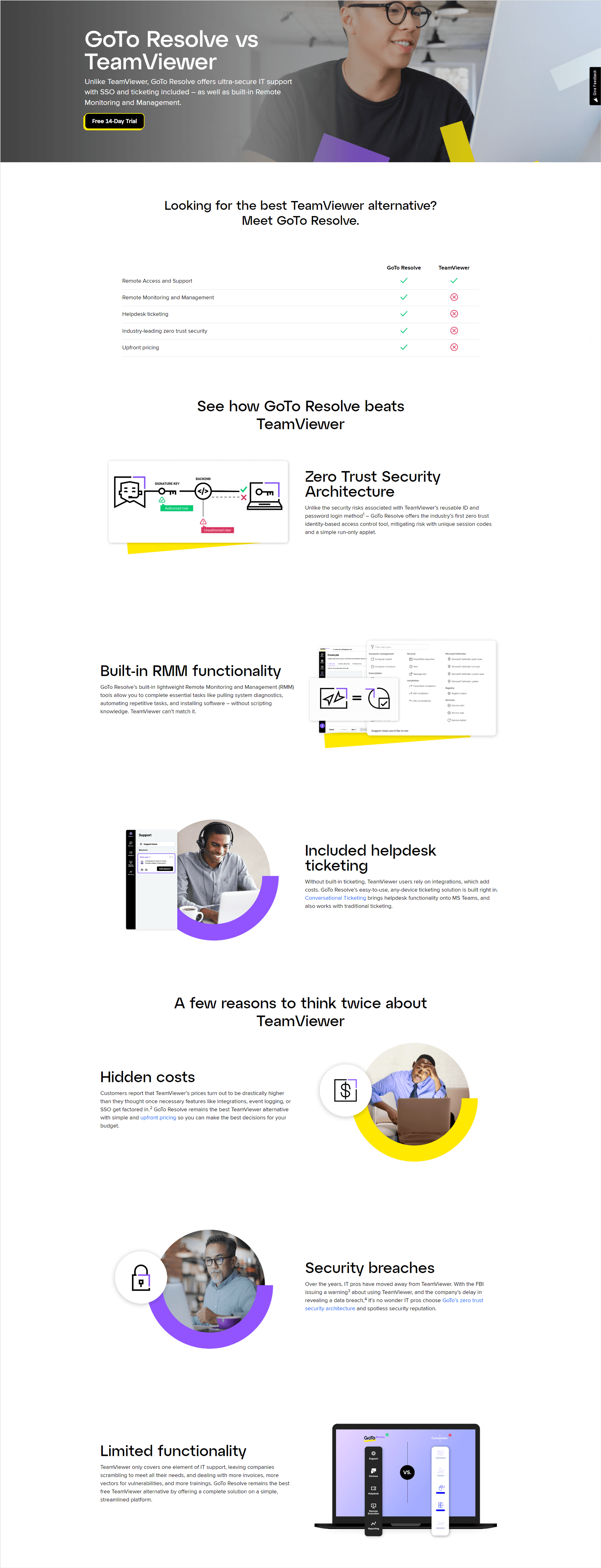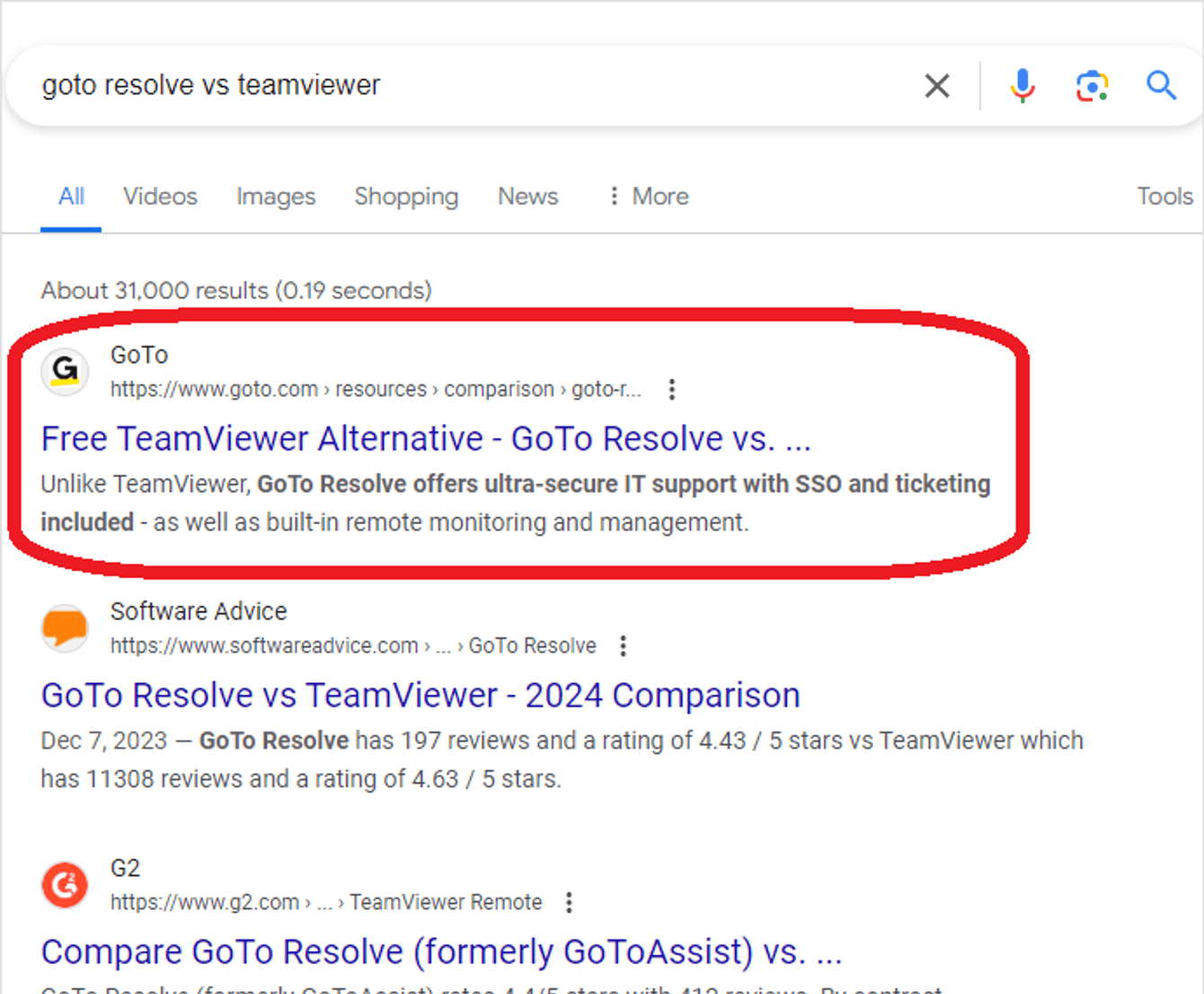
Launching Competitor Comparison Landing Pages
SEO
2
min read
Background
This project was completed during my time as Senior Web Marketing Manager, GoTo Resolve at GoTo Technologies (formerly LogMeIn) where I worked from 2021 until 2024.
GoTo Technologies is a cloud-based communication, collaboration and IT management SaaS company that offers trial and paid subscriptions to products including GoTo Connect, GoTo Meeting, and GoTo Resolve.
Challenge
Once GoTo Resolve launched in Feb 2022, we spent the first few months focused on building awareness. We also knew that as the market became more aware of GoTo Resolve, that we’d start to see users searching for competitive terms like “goto resolve vs teamviewer”. These types of queries come from middle-of-funnel users and to ensure that it was us that was helping them along in their journey, we needed to develop content that would rank for these types of terms.
Solution
I worked with our in-house SEO and product teams to develop content educated users on why GoTo Resolve was the better option relative to our competitors.
I laid out a framework for each of our competitor comparison landing pages so that we could launch additional pages more quickly. The framework required that the pages would:
Summarize the core product differences right up front
Provide an easy-to-scan feature comparison table
Highlight the key reasons GoTo Resolve beats the competing product
Follow those highlights with common concerns that users have about the competing product
Encourage users to try GoTo Resolve for free

Results
By launching these pages to market early, it allowed us to get ahead of competitive searches that would inevitably come.
Grew acquisition from organic search and paid search conquesting campaigns.
Increased purchase consideration for GoTo Resolve by driving users into additional product pages or directly into account signup.
Attained #1 organic search ranking for “goto resolve vs teamviewer” and related terms, outranking competitors and third-party review sites including G2, Capterra, and TrustRadius.

Key Takeaways
You can't always launch content based purely on keyword search volume. For new products, the volume simply isn't there on day one.
You can justify working on content with no or low search volumes by reframing it to expected search volumes.
Even in situations where keyword volume is low, certain search queries are made by users with a higher propensity to purchase and those are great opportunities to target.
© 2025 Keith Mura


